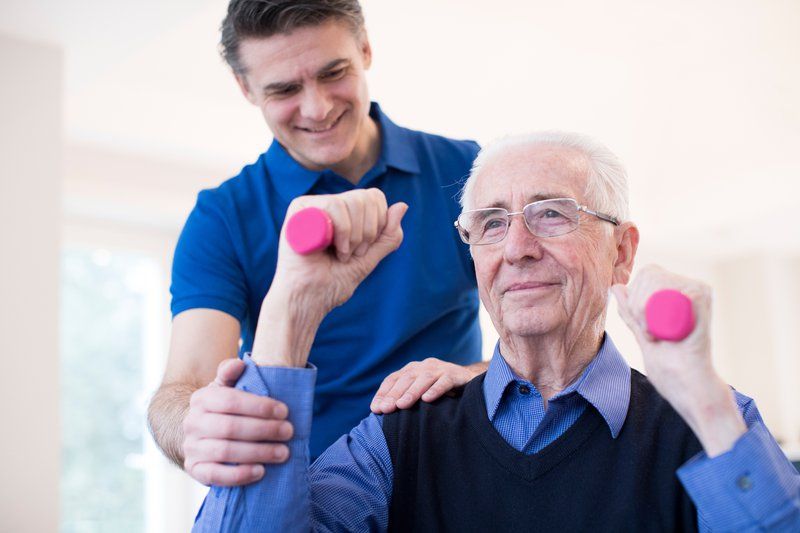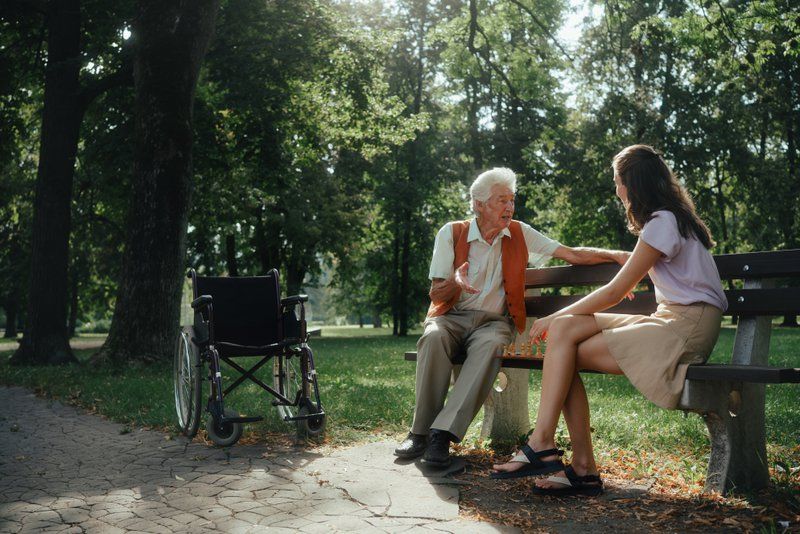
Dementia management requires a comprehensive care plan that encompasses nutrition and physical activity. Research has shown a significant correlation between diet and cognitive function in individuals with dementia, highlighting the impact of specific nutrients and dietary patterns. Similarly, the role of exercise in managing dementia symptoms cannot be overstated, with various forms of physical activity demonstrating benefits for cognitive health.
The Role of Exercise in a Dementia Care Plan
Physical activity plays a pivotal role in the management of dementia symptoms, offering multifaceted benefits for cognitive health. The impact of exercise on individuals with dementia is profound, encompassing both physiological and psychological advantages. Here’s a closer look at the significance of physical activity in dementia care:

Cognitive Benefits of Exercise
- Regular physical activity has been linked to improved cognitive function in individuals with dementia.
- Engaging in exercise can enhance memory, attention, and overall mental acuity, contributing to a higher quality of life for dementia patients.
Emotional Well-being
- Exercise has been shown to alleviate symptoms of anxiety and depression in individuals with dementia, promoting a more positive emotional state.
- Physical activity can also foster a sense of accomplishment and independence, bolstering the overall well-being of dementia patients.
Types of Exercise
- Both aerobic exercises, such as walking or swimming, and strength training activities have demonstrated positive effects on cognitive function in individuals with dementia.
- Tailoring exercise programs to the specific needs and abilities of dementia patients is crucial for maximizing the benefits and ensuring safety.
Caregiver Involvement
- Involving caregivers in facilitating and supporting exercise routines for individuals with dementia can enhance the overall effectiveness of the physical activity interventions.
- Caregivers play a vital role in encouraging and enabling dementia patients to engage in regular exercise, contributing to the holistic management of the condition.
Implementing Nutritional Strategies In Your Dementia Care Plan
Tailoring nutritional plans for individuals with dementia is essential for supporting their overall well-being and cognitive function. Implementing effective nutrition strategies involves personalized dietary approaches and practical insights to ensure optimal care for dementia patients.
Guidelines for Effective Nutrition Strategies
- Emphasizing nutrient-dense foods that support brain health, such as fruits, vegetables, whole grains, and lean proteins, is integral to effective nutrition strategies for dementia patients.
- Ensuring adequate hydration and addressing any challenges related to eating and drinking are key components of implementing nutritional plans for individuals with dementia.
Importance of Consistency and Routine
- Establishing regular meal times and creating a calm, familiar dining environment can promote better eating habits and reduce mealtime stress for individuals with dementia.
- Consistency in meal presentation and texture modification, if necessary, can facilitate easier and more enjoyable eating experiences for dementia patients.
Involvement of Caregivers and Healthcare Professionals
- Collaboration between caregivers and healthcare professionals is vital for implementing and monitoring the effectiveness of nutritional strategies for individuals with dementia.
- Educating caregivers about the specific dietary needs and challenges associated with dementia can empower them to provide optimal support and assistance in meal planning and preparation.
Integrating Physical Activity into a Dementia Care Plan
Integrating physical activity into dementia management presents unique challenges and opportunities, requiring tailored exercise programs and approaches suitable for individuals with cognitive impairments.
Tailored Exercise Programs
- Designing exercise programs that accommodate the specific needs and abilities of individuals with dementia is essential for ensuring safety and effectiveness.
- Incorporating activities that focus on balance, flexibility, and strength can help improve overall physical function and reduce the risk of falls among dementia patients.
Cognitive Stimulation through Physical Activity
- Engaging individuals with dementia in activities that involve coordination and cognitive stimulation, such as dancing or modified sports, can contribute to both physical and mental well-being.
- Combining physical exercise with cognitive challenges can enhance brain function and promote a sense of accomplishment for dementia patients.
Addressing Challenges
- Overcoming barriers related to motivation, communication, and behavioral symptoms is crucial when integrating physical activity into dementia care.
- Adapting exercise routines to accommodate fluctuations in mood and energy levels, as well as addressing any safety concerns, is vital for the successful implementation of physical activity programs.
Benefits of Exercise
- Regular physical activity has been associated with improved sleep patterns, reduced agitation, and enhanced overall quality of life for individuals with dementia.
- The positive impact of exercise on mood, social interaction, and physical well-being underscores the importance of integrating physical activity into comprehensive dementia management.
Holistic Approach to Dementia Care a Good Plan
A holistic approach to dementia care integrates nutrition and physical activity into a comprehensive care plan, recognizing the interconnectedness of these elements in promoting the overall well-being of individuals with dementia.

Comprehensive Well-being
- By addressing both nutritional needs and physical activity, a holistic approach aims to support the physical, mental, and emotional health of individuals living with dementia.
- This comprehensive strategy acknowledges the multifaceted nature of dementia and seeks to optimize the quality of life for patients through a well-rounded care plan.
Synergistic Benefits
- Integrating nutrition and exercise can create synergistic benefits, where the positive effects of each component complement and enhance the outcomes of the other.
- A holistic approach recognizes the potential for improved cognitive function, physical strength, and emotional resilience when nutrition and physical activity are integrated into dementia care plans.
Enhanced Quality of Life With a Dementia Care Plan
- Embracing a holistic approach to dementia care can lead to an improved overall quality of life for individuals with dementia, fostering a sense of purpose, independence, and vitality.
- By addressing the diverse needs of dementia patients through a comprehensive care plan, caregivers and healthcare professionals can contribute to a more fulfilling and enriching experience for those under their care.
The integration of nutrition and physical activity into comprehensive care plans is pivotal for effectively managing dementia. By recognizing the interconnectedness of these elements and embracing a holistic approach, caregivers and healthcare professionals can significantly enhance the overall well-being and quality of life for individuals living with dementia. The synergistic benefits of tailored nutritional strategies and personalized exercise programs underscore the importance of a multifaceted care approach. For personalized and holistic care options, readers are encouraged to explore the offerings at Assured Senior Living: https://www.assuredassistedliving.com/
Learn more about what sets us apart. A Dementia Diagnosis is not the end but a change in the ending. Together we can support those we love living with Dementia! Contact us today, or download our free Family Decision Toolkit guide for more information.


